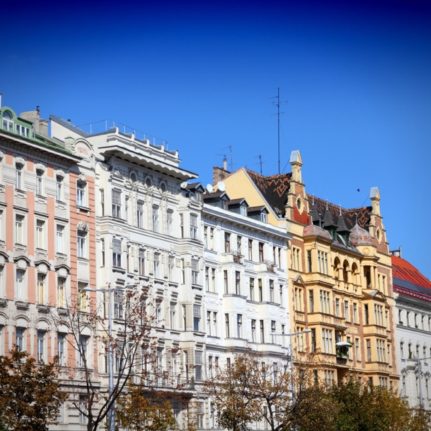A 26-year-old man sped through the streets of central Vienna in his Mercedes on a Sunday evening.
After he failed to stop at a red light he mowed into a car being driven by a 48-year-old woman. She later died in hospital.
The police had said a video recorder at the time of the accident showed evidence the driver was taking part in some kind of illegal race. Even though a Vienna court later said it saw “no evidence at all” that indicates street racing, the debate was already ignited.
Does Austria, and especially Vienna, have an illegal car racing problem?
According to the Viennese police, there are no statistics specifically for street racing. However, “there is an active racing scene in Vienna”, spokesperson Markus Dittrich told The Local.
READ ALSO: What happens if you get arrested in Austria?
Estimates put the number of “members of the illegal scene” in Vienna between 800 to 1,000 people. Current hotspots are still the area around Kahlenberg, Triester Straße, the Oberlaa area and the Kagran business park.
The police measured instances of speeding and from April to August 2022, around 6,500 reports were placed in the capital and 30 driving licenses were confiscated on site.
What are the police currently doing?
“In order to take decisive action against the active racing scene, checks have been significantly increased.”
“Furthermore, coordinated traffic planning checks are being carried out by the Vienna police department and various city police commands, and the relevant municipal departments are also involved”, Dittrich said.
In August, the City of Vienna took action in one of the “hotspots” for racing, adding 65 concrete barriers to prevent races in the car park in Kahlenberg, as The Local reported.
As racers move to different areas once blocks are put in place, the police also resort heavily on the two consequences it can impose: high fines and the revocation of driving licenses.”.
READ ALSO: Vienna wants to take action against speeding drivers
Fines can reach up to €5,000 on higher offences, such as driving 40 km/h or more over the speeding limit in a city (or 50 km/h above limits on a road). In addition, driving licences can be withheld for one month or three months in the case of repeated offences.
From an excess of 80 km/h, the license is taken away for half a year.
Calls for changes in the law
The recent debate in Austria has also now brought the issue of possible changes in the law, with experts claiming that the current legislation might not be sufficient.
Illegal racing is not a crime per se, but offences such as “endangering physical safety” or “deliberate endangerment of the public” are applied. If people are killed or injured, the crime is negligence – with up to three years in prison possible for those convicted of grossly negligent homicide.
READ ALSO: Everything you need to know about driving on the autobahn in Austria
Some are asking for “zero tolerance“, saying that the crimes should not be seen as negligence but as murder – those who drive too fast or under the influence of alcohol take a risk knowing they might kill someone.
Others, however, say that turning negligence into murder holds a trap. “Attempted murder is also punishable. So the penalty for just participating in an illegal auto race where nothing happened? In practice, for example, 12 years in prison for 350 meters of a car race on Triester Straße?” wrote Constitutional Court member Dr Michael Rami on Twitter.
VERSUCH ebenso zu bestrafen ist (§ 15 StGB). Also die oben genannte Strafdrohung für die bloße TEILNAHME an einem illegalen Autorennen, bei dem nicht geschehen ist? In der Praxis also zB: 12 Jahre Haft für 350 Meter Autorasen auf der Triester Straße? In Deutschland wurde dafür
— Michael Rami (@michael_rami) September 13, 2022
Still, the head of the legal services at Austria’s traffic authority ÖAMTC, Martin Hoffer, told public broadcaster ORF: “To prove murder against someone, you, of course, have to prove the corresponding intentionality”.
“That doesn’t mean a specific intention to kill a certain person, but to seriously consider it possible (and to accept) that someone may die in that situation.” So, a racing driver may not set out to kill someone, but they acknowledge that their actions could result in somebody’s death.
That could be a realistic scenario in an illegal race – and the debate in Austria continues.



 Please whitelist us to continue reading.
Please whitelist us to continue reading.
Member comments